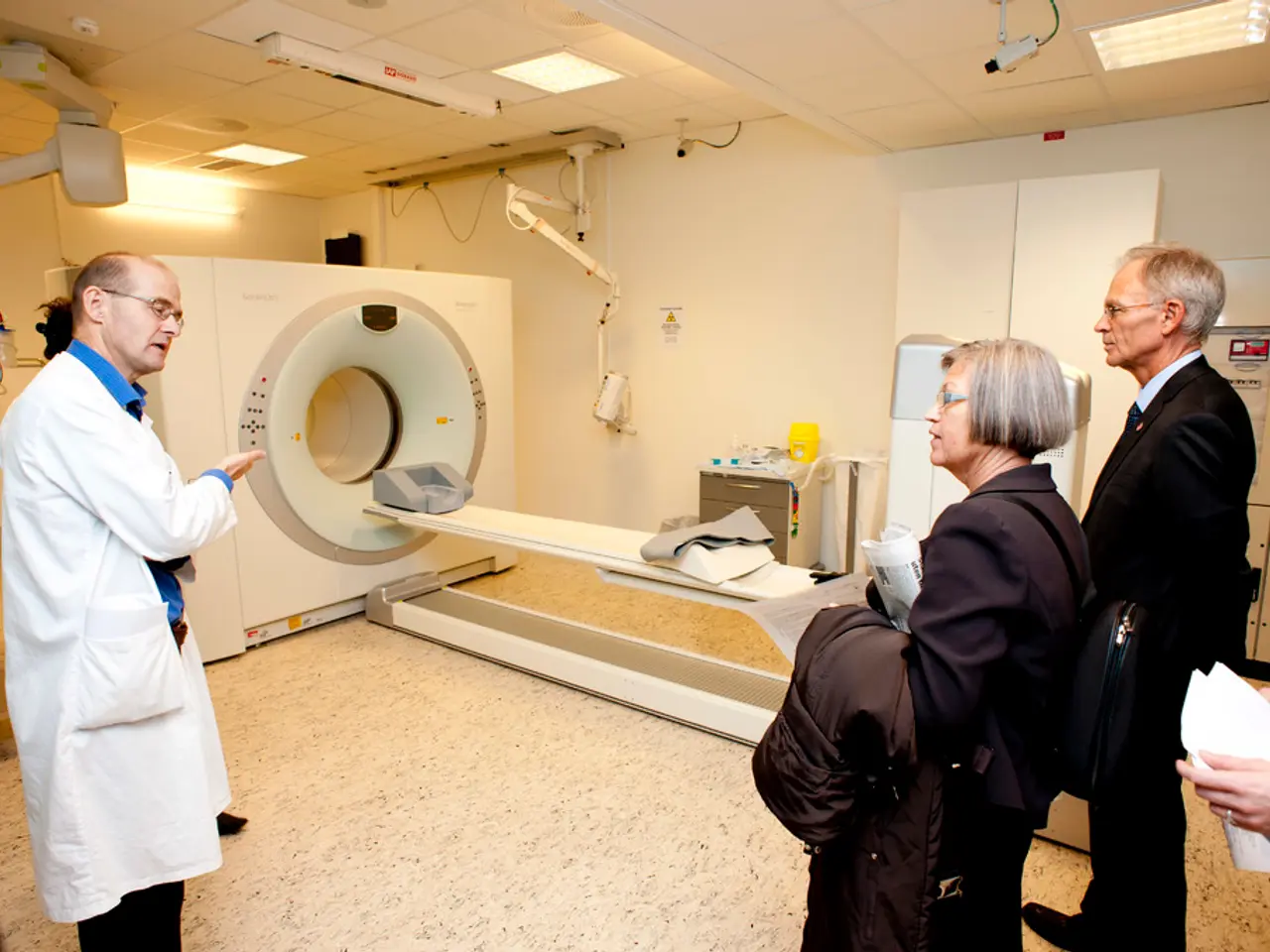Genomic testing collaboration between Illumina and Tempus AI aims to extend beyond cancer treatment
Precision Medicine Expands Beyond Oncology
Precision medicine, a revolutionary approach that matches the right drug to the right patient, is no longer limited to oncology. This expansion is driven by advancements in genomics, imaging, and immunology, and is exemplified in therapeutic areas such as cardiology, neurology, and rheumatology.
In cardiology and rheumatology, the emerging subspecialty of cardio-rheumatology focuses on the interplay between cardiovascular disease and autoimmune/inflammatory rheumatic diseases. Precision medicine here includes advanced imaging techniques and immunomodulatory therapies targeting inflammatory pathways. However, this field still faces challenges like limited global collaboration and the need for interdisciplinary integration to fully mature and impact diverse populations.
In neurology, precision medicine is increasingly targeting complex, chronic neurological diseases by identifying early biological changes before overt symptoms develop. Companies and specialists focus on early intervention based on multimodal data, including genetics and other biomarkers, moving healthcare from reaction to prevention and resilience building.
Companies like Illumina and Tempus play a crucial role in this expansion. Illumina, a leader in genomic sequencing technologies, enables broad application of genomic data beyond oncology, supporting efforts in cardiovascular, neurological, and autoimmune diseases by providing robust genetic information essential for tailored therapies.
Tempus, on the other hand, integrates molecular and clinical data using AI-driven analytics. Originally focusing on oncology, Tempus is increasingly applying its platform to other therapeutic areas by enabling precise diagnosis and treatment planning based on genetic and clinical variables.
The acquisition of genetic testing company Ambry Genetics for $600 million in November by Tempus is a testament to its commitment to expanding beyond cancer. This move is intended to allow Tempus to expand into areas including pediatrics, rare disease, immunology, women's reproductive health, and cardiology.
The partnership between Illumina and Tempus is focused on standardizing the use of comprehensive genomic profiling and other molecular testing across all major categories of disease. This collaboration aims to routinely route every patient to the optimal therapeutic in oncology and then expand this approach to other therapeutic areas. The partnership intends to enable targeted treatment in various therapeutic areas, including cardiology, neurology, rheumatology, and others.
The partnership with Illumina is intended to speed up the process by generating insights that show the clinical value of sequencing. Precision medicine, which matches the right drug to the right patient, is largely limited to oncology, but there is interest in applying the model to other therapeutic areas. In most therapeutic areas, the patient's clinical presentation and lab results inform the choice of drug. However, precision medicine could allow more patients to receive effective therapies first time, reducing the harm caused by spending time on medicines that do not work but may cause side effects in the process.
The ongoing integration of large-scale genomic data with clinical and environmental factors by these companies facilitates the development of precision medicine frameworks across multiple specialties. The expansion of RNA- and DNA-based precision diagnostics and therapy recommendations is actively evolving, exemplified by efforts like context-augmented AI models that deliver FDA-approved therapy guidance, initially in oncology but also adaptable to other diseases.
Tempus CEO Eric Lefkofsky outlined the expansion opportunity at a Morgan Stanley event last month. He stated that the move to precision medicine has taken longer than expected due to a broken healthcare system. Sequencing tests are already enabling physicians to find cancer patients who are more likely to respond to targeted treatments. As these technologies continue to evolve and expand, precision medicine is poised to revolutionize healthcare across multiple therapeutic areas.
References: 1. Context-Augmented AI Models for Precision Oncology 2. Cardio-Rheumatology: An Emerging Subspecialty 3. Precision Medicine in Neurology: Challenges and Opportunities 4. Cardio-Rheumatology: The Interplay Between Cardiovascular Disease and Autoimmune/Inflammatory Rheumatic Diseases 5. Global Collaboration and Interdisciplinary Integration in Cardio-Rheumatology
- The expansion of precision medicine is driven by advancements in various fields, such as genomics, imaging, and immunology, and is increasingly seen in therapeutic areas like cardiology, neurology, and rheumatology.
- In the emerging subspecialty of cardio-rheumatology, precision medicine involves advanced imaging techniques and immunomodulatory therapies targeting inflammatory pathways.
- Companies in health-and-wellness technology, like Illumina and Tempus, play a crucial role in this expansion, providing robust genetic information essential for tailored therapies.
- Tempus is expanding beyond oncology by integrating molecular and clinical data using AI-driven analytics and plans to expand into areas like pediatrics, rare diseases, immunology, women's reproductive health, and cardiology.
- The partnership between Illumina and Tempus aims to routinely route every patient to the optimal therapeutic in various therapeutic areas, including cardiology, neurology, rheumatology, and more, and enable targeted treatment.
- The development of precision medicine frameworks across multiple specialties is facilitated by the ongoing integration of large-scale genomic data with clinical and environmental factors, leading to advancements in RNA- and DNA-based precision diagnostics and therapy recommendations.
- AI-based diagnostic tools, like context-augmented models, are being developed to deliver FDA-approved therapy guidance, initially in oncology but adaptable to other medical-conditions, revolutionizing healthcare across multiple therapeutic areas.




